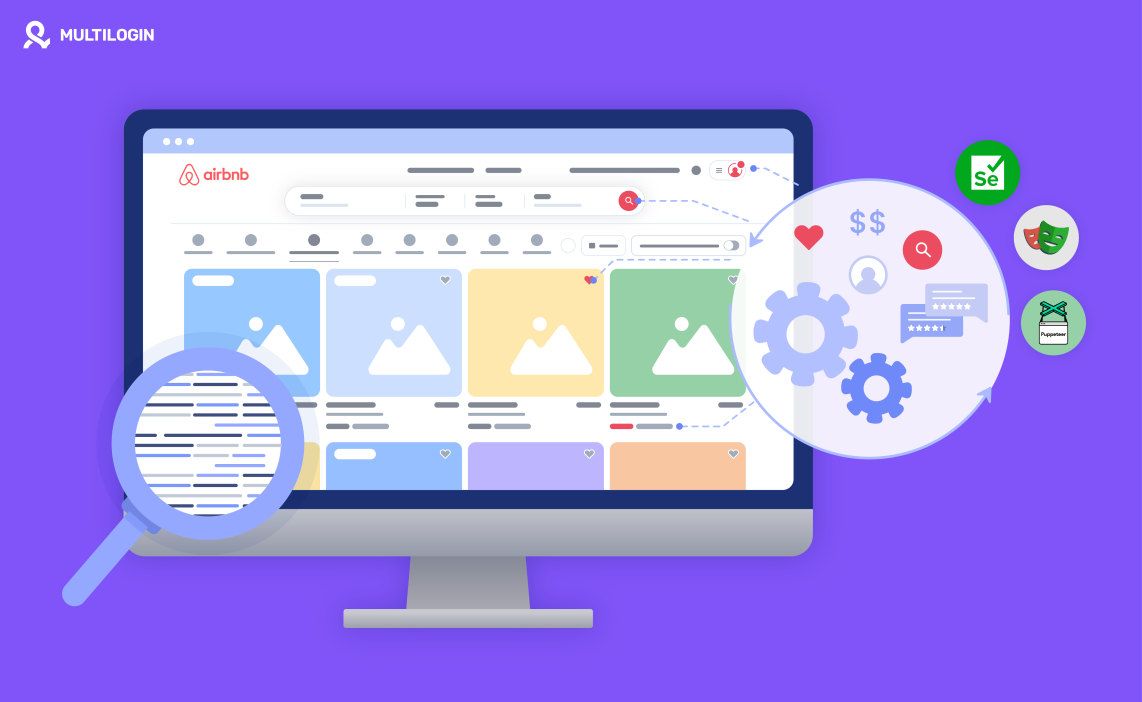Web scraping is a popular method used by businesses, researchers, and analysts to gather data from websites. However, when it comes to scraping platforms like Airbnb, things can get a bit tricky due to legal and technical challenges.
In this guide, we’ll explore the ins and outs of web scraping on Airbnb, including the methods, legal considerations, and tools you can use to extract data efficiently and safely.
Does Airbnb Allow Web Scraping?
In short, no, Airbnb does not allow unauthorized web scraping. The platform explicitly states in its terms of service that any automated collection of data is prohibited without their consent.
This includes the use of bots, spiders, or scrapers to gather information from the website. Violating these terms can result in legal action, account suspension, and being blocked from accessing the site.
 Is Web Scraping Ever Illegal?
Is Web Scraping Ever Illegal?
The legality of web scraping largely depends on how and what you’re scraping. While scraping public data isn’t always illegal, doing so without consent may breach the terms of service of many websites, including Airbnb.
Additionally, collecting private or sensitive information without permission is often illegal and can lead to severe legal consequences. In the U.S., web scraping legality has been debated in courtrooms, with rulings varying depending on the context.
For example, scraping publicly available data may be allowed in some cases, but scraping a website that actively blocks scrapers could be a violation of the Computer Fraud and Abuse Act (CFAA).
How to Extract Airbnb Data?
If you’re looking to gather Airbnb data for research or business purposes, there are legal alternatives to scraping. The most reliable methods include:
Airbnb API: Airbnb offers a limited API that developers can use to access some data legally. While the API does not provide access to all the data you may need, it’s the safest and most compliant method of gathering data from Airbnb.
Market Research Tools: Several third-party tools aggregate data from Airbnb, providing valuable insights without requiring you to scrape the website directly. These tools offer data on pricing trends, property availability, and rental demand, often sourced legally.
Manual Data Collection: If you need data from just a few listings, you can manually copy the information from the website. Although time-consuming, this method avoids legal issues related to scraping.
Can I Download Airbnb Data?
Downloading Airbnb data is possible using legal means. Here are your options:
Using Airbnb’s Data Export Tool: Airbnb allows hosts to download their own booking and listing data through their account settings. This feature is limited to hosts and only provides a small subset of the data available on the platform.
Airbnb API: For developers, the API is the best route for downloading certain types of data legally, although its scope is limited compared to web scraping.
Third-Party Services: Data aggregation services often compile Airbnb data from legal sources and may allow you to download relevant information for research or analysis.
How to Scrape Airbnb Data in Python?
For those who want to scrape Airbnb despite the risks, Python remains the go-to language due to its rich ecosystem of web scraping libraries. Here’s a step-by-step guide for scraping Airbnb data using Python:
Step 1: Install Required Libraries
First, you’ll need to install some essential libraries such as BeautifulSoup, Requests, and Selenium (for JavaScript-heavy websites like Airbnb).
Step 2: Send HTTP Request
Using Python’s requests library, you can send a request to the Airbnb page you want to scrape.
Step 3: Parse the HTML Data
Once you have the HTML content, use BeautifulSoup to parse and extract the required information like property details, prices, or reviews.
Step 4: Handle Pagination
To scrape all listings, you’ll need to account for pagination and loop through multiple pages of search results.
Step 5: Store the Data
Export your scraped data to a CSV file for further analysis.
Using Anti-Detect Browsers Like Multilogin for Scraping
To avoid detection when scraping websites like Airbnb, anti-detect browsers such as Multilogin can be useful. These tools help mask your digital fingerprint by creating multiple browser profiles, each with unique device configurations.
By using Multilogin, you can minimize the risk of being blocked or flagged while scraping, ensuring that each request appears to be coming from a different user or device. However, remember that using such tools may still violate the website’s terms of service.
FAQs About Airbnb Web Scraping
Is Web Scraping on Airbnb Allowed?
No, Airbnb’s terms of service explicitly prohibit web scraping without permission.
Is Web Scraping Ever Illegal?
Yes, web scraping can be illegal if it violates a website’s terms of service, extracts private data, or bypasses security measures.
How to Extract Airbnb Data?
You can extract Airbnb data legally using the Airbnb API or through manual data collection. Unauthorized web scraping can lead to legal consequences.
Can I Download Airbnb Data?
Airbnb allows hosts to download booking and listing data. Additionally, some third-party tools provide downloadable market data from Airbnb.
How to Scrape Airbnb Data in Python?
You can scrape Airbnb data using Python libraries like BeautifulSoup and Requests. However, scraping Airbnb without permission is against their terms of service.
Final Thoughts
Web scraping Airbnb data can offer valuable insights, but it comes with significant risks. The platform’s terms of service prohibit scraping, and violating these terms can lead to serious consequences, including account suspension or legal action.
If you need data, consider using legal alternatives like the Airbnb API or third-party research tools. If you must scrape, use anti-detect browsers like Multilogin to minimize risks, but proceed with caution to avoid legal issues.


